When people imagine Namibia, I think they might picture the villages near Opuwo. The vibrant cultures, traditional clothing, and way of life make for an Africa that no longer exists in many places. There is an undeniable beauty and simplicity that exists here.
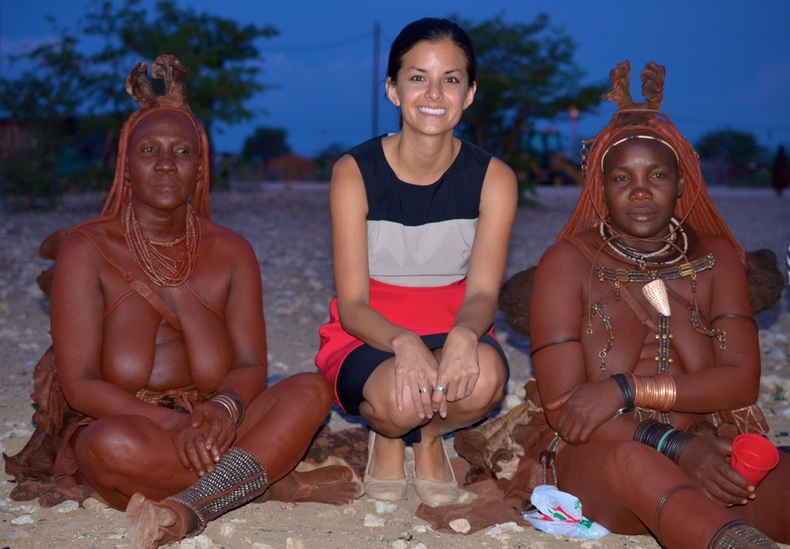
-Himba women with whom I spoke
This photo and all the others on this post were taken by Andrew
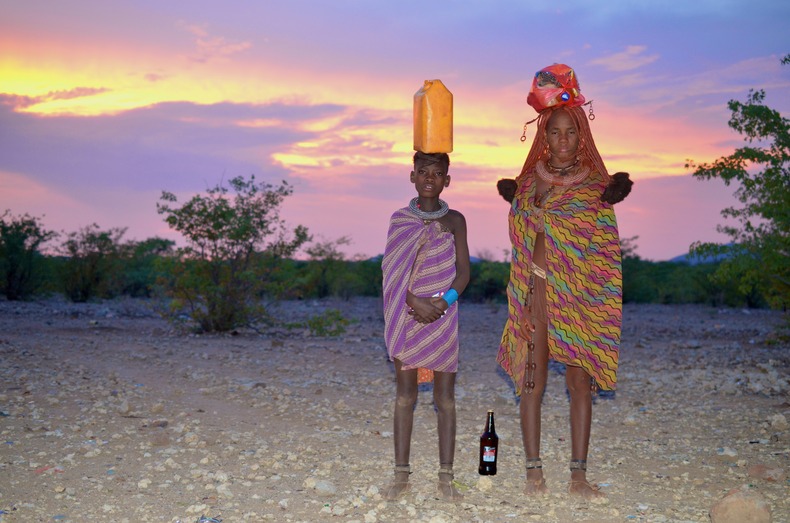
-Himba girls
Yet there is a price paid for living traditionally and in isolation. Some villages do not have roads or clean drinking water.There is very limited access to education, healthcare and the justice system. Without education, how will individuals be empowered to make choices in their lives, or know that they have the right to make choices?
Some would consider starting at the point where individual rights are assumed to be very western. They might argue that groups have the right to choose this way of life which is in some ways true since group rights and the right to custom are protected to some extent by the Namibian Constitution and under regional and international law (which some would also consider very western). But these rights are protected only so long as they do not interfere with other constitutional rights. Regardless of where individual rights originated, the Namibian Constitution focuses on the rights of the individual.
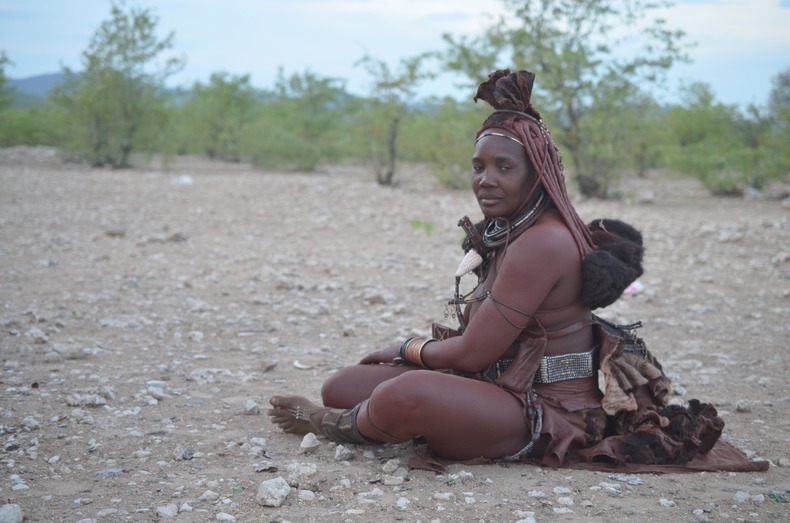
-Himba woman
Is the legal recognition of customary law discriminatory? As Andrew points out, in the U.S. having two separate school systems was held unconstitutional--having two separate systems meant they were inherently unequal. How is having two separate legal systems different? [Note: in Namibia individuals living under customary law have the right to bring a civil or criminal case, but are unlikely to do so for practical and cultural reasons.] In Namibia, one system is clearly better funded and receives more support and training from the government. It seems that customary law was recognized in part because these groups had been oppressed for so long and taking their autonomy would not be a good political move.
So you have inequality between the two systems and inherent inequality within the customary systems. Double inequality for vulnerable groups living under customary law. Similar to the double-bind in feminist theory, but in some ways worse since these are legal rules instead of societal oppression. My concern is not only about the substantive laws that hurt women but the procedures that do not give women a voice, or legal standing. Based on customary dynamics and leadership, women and girls do not have decision making power to report a crime or bring a case. Rather, matters are decided as a group and the head of the household has the final say. The inability to bring a case illustrates how limited their autonomy is over many areas of their lives.
Where the head of household is the one deciding whether a violent crime, like rape, committed against a female family member should be reported to the police, or at all, this also illustrates the extent of the issue. Depending on her family and how far away her village is from town, a victim may not be able to receive health or social services on top of not having the perpetrator brought to justice. She may have been taught that rape by a family member is not a crime. If this were to happen she wouldn't report not only because she is not allowed to, but because she does not know that what happened to her was wrongful. I think it is very unlikely that women in such villages have any sort of choice in whether or not to live this life.
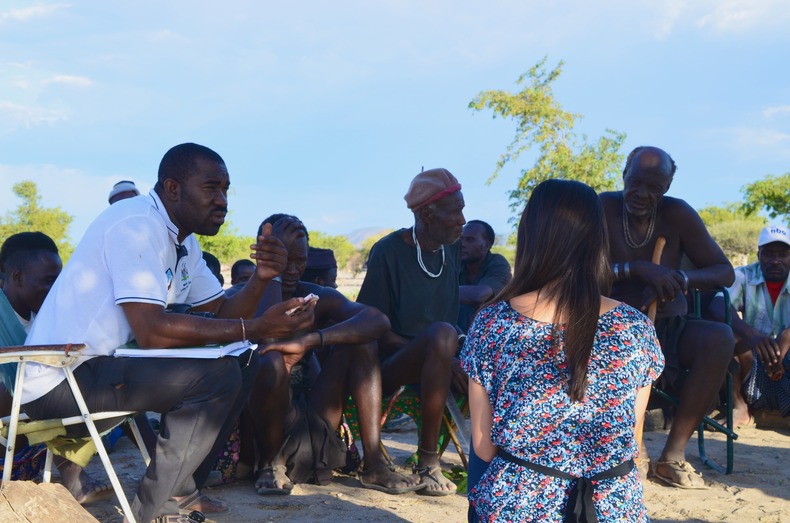
-Notice that all the decision makers in this village and those speaking in the meeting are men. No women spoke during this meeting.
I am by no means suggesting that it is now possible or practical to backtrack and no longer recognize customary law since it has now been protected by the Namibian Constitution for nearly 25 years. Rather there must be better systems in place to educate all the individuals living under customary law and training and support must be improved. There must be better systems to empower and protect women and other vulnerable groups.
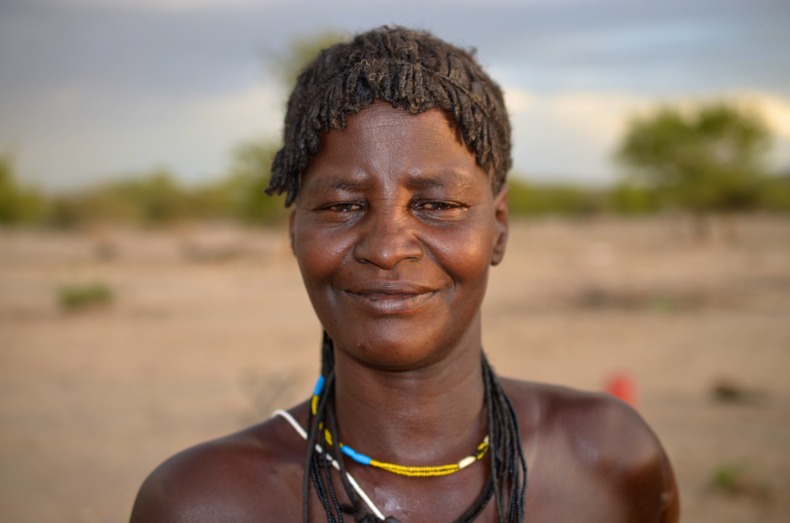
-Zemba woman
Living in the world. Humanitarian. Advocate for health, human rights and equality. Documenting experiences and observations.
